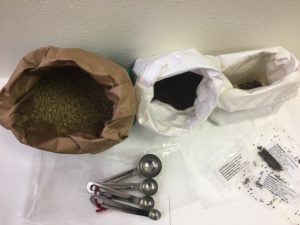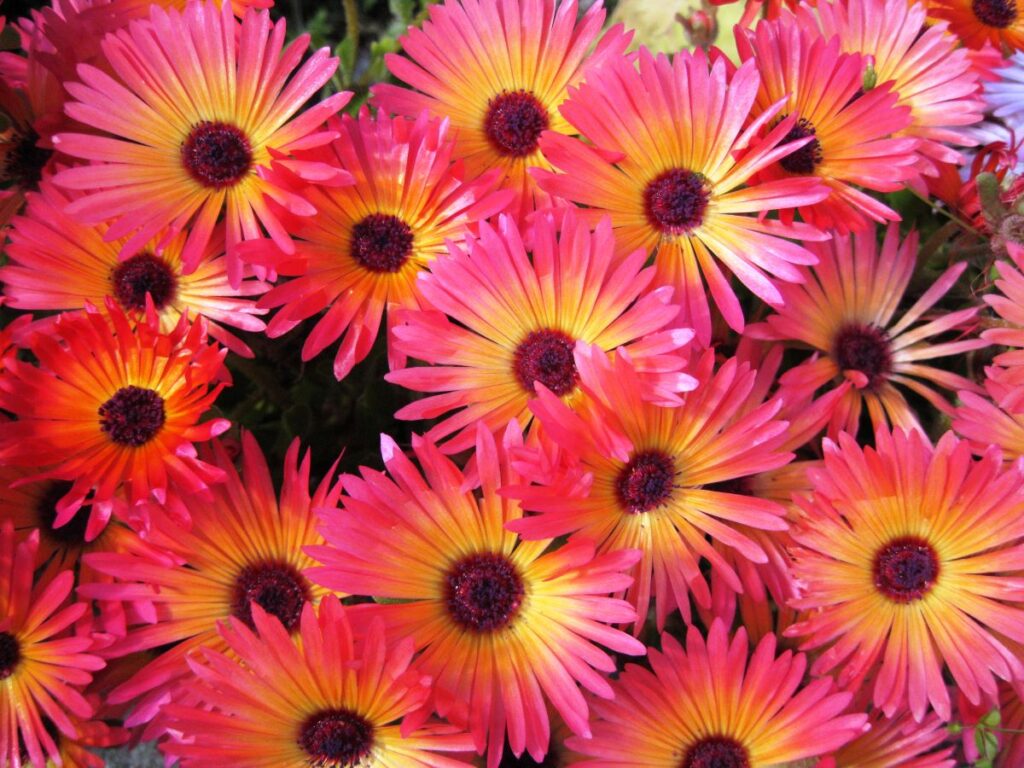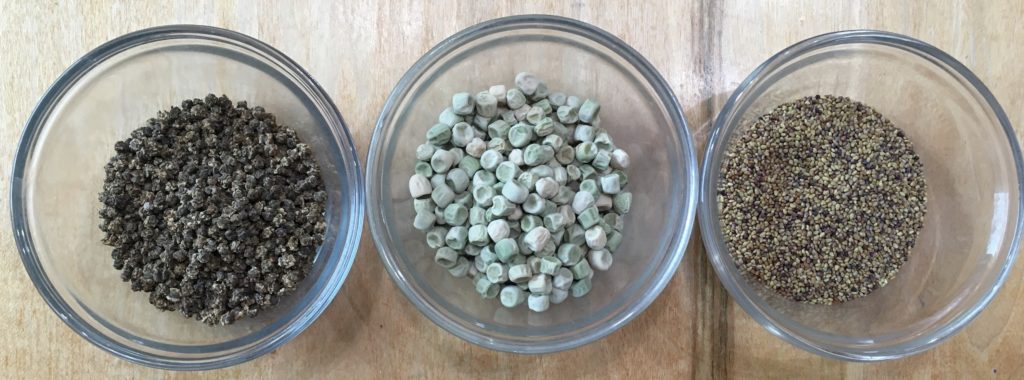For a variety of reasons related to COVID-19, this spring, seed companies are struggling to fill the demand for seeds. Johnny’s Selected Seeds and Stokes Seeds for example are limiting or temporarily limiting orders from home gardeners. Right now, these seed companies are only offering larger quantities of seeds. The availability of certain varieties is somewhat limited and shipping times may be much longer than we’re used to. For these reasons, gardeners should strongly consider holding a seed swap. Even in normal times, a seed swap can be a great way to save money. Seeds can get expensive at $2 to $4 per packet. There are a couple of different ways to organize a swap or share. Gardeners could bring their leftover seeds that may otherwise go unused, or a host or group could purchase seed in bulk, which is cheaper than buying packets, and then divvy them up at the seed swap. The cost can be shared among attendees or, if the host is a nonprofit, borne by the host.

Seeds purchased in bulk are more affordable and ideal for sharing seeds.
When you buy seeds in bulk, you won’t get a fancy seed packet with an alluring photo of the flower or vegetable. You also won’t get the basic growing instructions on the packet. However, you can easily look up growing instructions online or in a seed catalog. Labels for bulk seeds, with basic growing information such as days to maturity, plant spacing and more, can be preprinted and provided to swap participants. Seed swaps and shares are also an opportunity for gardeners and farmers to bring truly unique seeds that they may have developed and saved from their own garden or farm that are well adapted for the local growing conditions. While you’re swapping seeds, trade your latest gardening hack, too. A seed swap or sharing event doesn’t have to be big. It can be a small, informal affair with friends.
If you decide to host a seed event, make sure you let people know if they are expected to bring seeds to share or contribute to the cost of buying bulk seeds, or if the seeds are provided for free by the organizer. You might want to have a sign-up sheet beforehand (much like a potluck sign-up sheet) so you don’t end up with everyone bringing carrot seeds or radish seeds. Getting a head count for a seed-sharing event will also help with planning.
Here are some suggestions for hosting a seed swap or sharing event: Line up bowls or containers for all of your seeds and label each one with the seed variety it contains. You can hand out a sheet of labels to each participant and arrange the bowls in the same order as the labels. You should also supply small envelopes like coin envelopes for each participant. I’ve used small plastic bags but they are not recommended for long term storage. The envelopes are better for long-term storage because they are breathable and opaque. You’ll need enough bags or envelopes for the number of gardeners attending multiplied by the number of seed varieties. Again, circulating a sign-up sheet prior to the event will ensure you have enough supplies.
Ask each person to bring some measuring spoons. Before everyone starts helping themselves to seeds, calculate or estimate the amount of seeds they should take in terms of a measuring spoon size and write that on the container.
Now, let the seed swapping and sharing begin! Have everyone rotate around the room. Seeds can be arranged in the same order as the labels on their sheet to make things less confusing. Each gardener will spoon the allotted amount of seeds into each bag and label it. Once everyone has gotten some seeds of every type, gardeners can circulate once more until any leftover seeds are gone, or you can save some seeds for another event.
The benefits of gardening are many. Those who garden get some regular exercise, save money, eat more fruits and vegetables, share with their family and neighbors and benefit mentally. A seed swap or sharing event might be just the thing that plants a seed to help someone start a new garden for the first time. If you end up with leftover seeds, here are some tips on saving your seeds.
Previously published in the Fairbanks Daily Newsminer May 20, 2017. Updated January 28, 2021.


